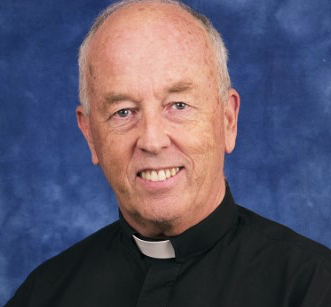 The God Who Gives Life to All Things (1 Timothy, 6:13)
The God Who Gives Life to All Things (1 Timothy, 6:13)
New events have a way of opening up doors to riches in the Christian tradition not quite realized before. There’s a line in Timothy’s letter today which gives one instance this process at work, in this case the process whereby new experiences rippling through the whole society can uncover heretofore unseen scriptural treasures. The new event is the growing appreciation of the natural world, especially in all its interconnectedness.
Timothy’s line is, “I charge you before God, the God who gives life to all things.” The emerging awareness is that “all things” doesn’t mean just all human things, but all things period, all of creation. This is our awakening to ecology, a budding consciousness that has been so boldly, challenging –and lyrically — expressed by Pope Francis in his encyclical, Laudato Si. His and others’ new awareness is one of those realizations, helping us disciples living now to see things in the Word of God that we did not, so to speak, notice the first time around.
This Green Revolution is opening our eyes to see that God has a passionate affection not only for us humans but for all of creation, that in Jesus God has drawn near not only to us humans but to the whole universe. And therefore in response, we too are to be about cherishing, protecting and fostering what God in God’s Self so loves; i.e., creation itself. As Timothy tells us, this is the God who gives life to all things.
A few ways to move with this thought.
The first is a renewed grasp of the interconnectedness of all things: everything links with everything else; nothing is isolated.
A scientist, Arthur Peacocke, brings this home in answer to the question, what makes our blood red? He writes, “Every atom in our blood would not be there had it not been produced in some galactic explosion billions of years ago, and eventually condensed to form the iron in the crust of the earth from which we have emerged.” That is to say, we and all other varieties in creation are made of stardust! You can’t conceive of anything that’s not connected to everything else. Laudato Si is full of instances of just this wonder.
The second is the truly startling claim we make as Christian believers: God is with us, accent on the with. And, with us not just as a safe onlooker from a distance, but, in Jesus, with us by actually joining this world, in its flesh.
Elizabeth Johnson puts it this way, “Born of a woman and the Hebrew gene pool, The Word of God became a creature of Earth. Like all creatures, Jesus was an earthling whose blood held iron made in exploding stars and whose genetic code made him kin to the whole community of life that descended from common ancestors in the ancient seas.” And so Emmanuel, God with us, “doesn’t mean God with just us humans, but God with the whole biological world of living creatures and the cosmic dust of which they are composed.” (Abounding in Kindness. Orbis Books, p. 111.) A phrase she uses for this is “Deep Incarnation” – God incarnated not only into the flesh of us humans, but even more deeply into the flesh of the entire universe.
Which brings us back to Timothy’s words, “The God who gives life to all living things” – but now extended to “the God who gives existence to all things.”
This awakening to nature, this appreciation of the interconnectedness of all things with both its beautiful and frightening implications, awakens us once again to something mostly missed on first reading. God’s love and presence extends to all the universe, not just to our place in it. The whole of the physical world is the location of God’s gracious indwelling.
So we might pick up Francis’ encyclical and contemplate its message — and then even further, act on it. “The God we name and worship,” Johnson continues, “is not just to be contemplated but to be practiced.” It’s not that we just see God in the world, but that we take up God’s passion for the world.
Also, we might look anew at the expanse of each Eucharist we celebrate. And that is, in it, we join with The Lord Jesus’ in offering up not only Himself and all of us to His Heavenly Father, but also of all of creation to the glory of the All-Gracious Creator God.







0 Comments